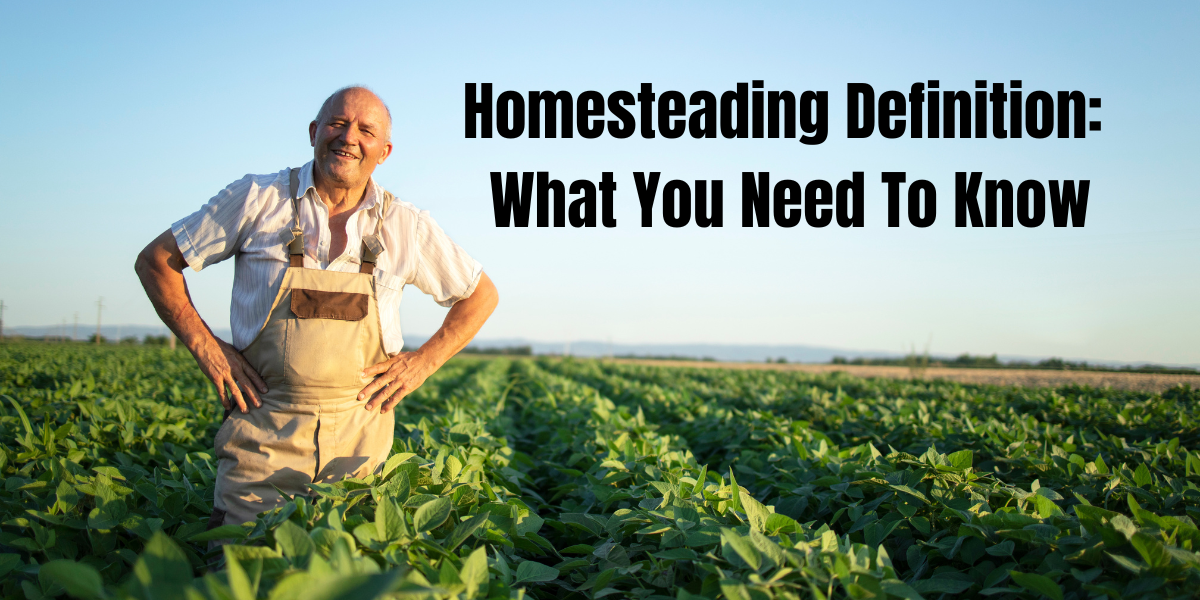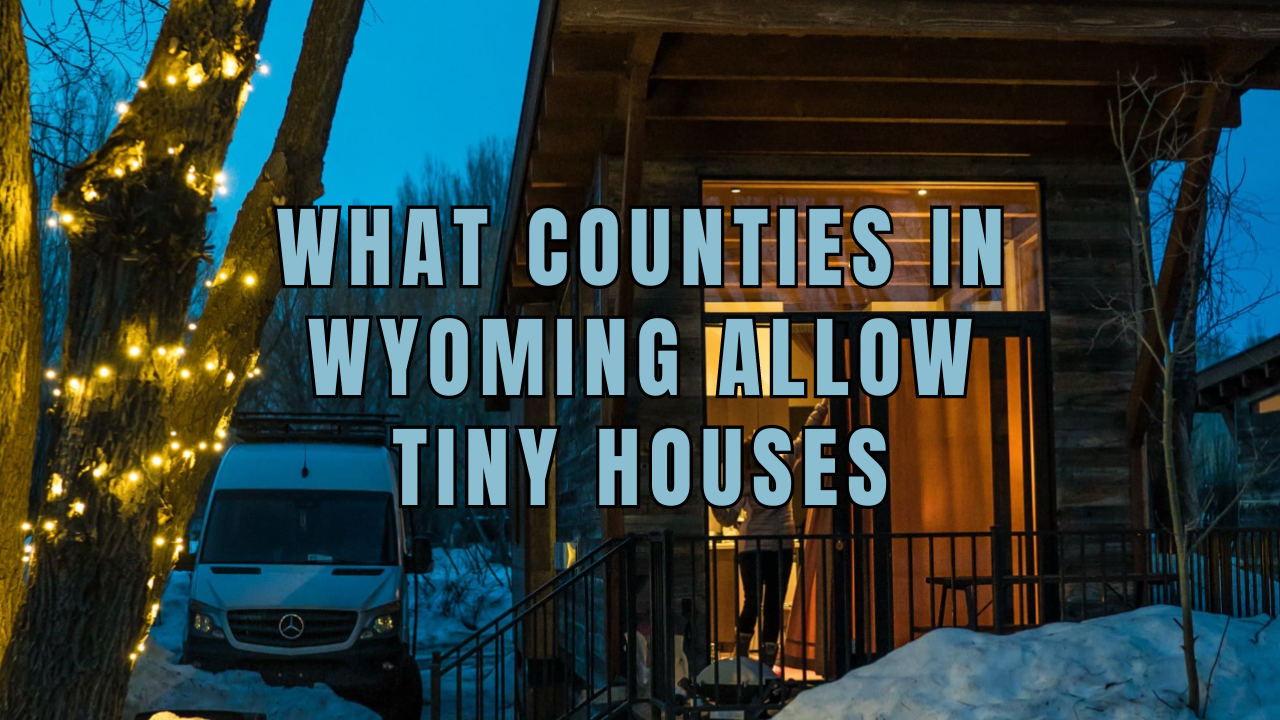Homesteading is a way of life that leads to self-sufficiency, sustainability, and a closer relationship with nature. It means growing your own food, raising animals, and not buying things from stores. But what does it mean, and how does one begin this journey? This article is meant to give you important information about the homestead lifestyle. We’ll talk about what it’s like to be a homesteader, from knowing the laws to having the hands-on skills and the patience and dedication it takes. The goal is to give you the information you need to decide whether or not to start homesteading and live this way.
Homestead Definition
According to dictionary.com, the definition of “homesteading” is a place with land and structures occupied by the homeowner as a house and exempted by a homestead law from confiscating or selling for debt or a place with its land and structures where a family makes its home.
Ralph Borsodi
Ralph Borsodi was a social theorist and economist who pushed people to be self-sufficient and homesteading. He said industrial capitalism and market culture led to unhappiness and social inequality. Borsodi instead pushed for a return to a simpler way of life, where people could become completely self-sufficient by farming. He thought people should be able to make the things they needed at home, so he emphasized useful skills like gardening, weaving, and making bread. Borsodi’s ideas, which he wrote about in books like “This Ugly Civilization” and “Flight from the City,” had a big impact on the “back-to-the-land” movement and still do today.
Why Do People Homestead?
People choose to homestead for many reasons, but they often want to be more self-sufficient, sustainable, and connected. Many people want to grow their own food because it can help them eat healthier and lower their carbon footprint. Others like working with their hands and doing things like taking care of animals or keeping up a food garden. Homesteading can often be a cheaper way to live in the long run, which is another reason people do it.
Also, homestead rules offer some protection from creditors, which can be a strong reason to buy a home. Homesteading can also give you a greater connection to nature and a slower, more mindful way of life. It helps build endurance, resourcefulness, and a sense of belonging to a group. In a world that is getting faster and less linked, these parts of homesteading are very appealing to many people.
History of Homesteading
The U.S. Homestead Act of 1862 is where the idea of a homestead came from. President Abraham Lincoln signed this law, which made it possible for any American, including freed slaves, to claim up to 160 acres of free federal land. The only condition was that the person had to build a house and grow crops on the land. This act was a big part of why the United States grew westward and helped people move to the western regions and states. It lets people claim and settle about 270 million acres of public land, about 10% of the total land area of the U.S., but the Act was taken away in 1976, though Alaska kept it in place until 1986. Modern homesteading doesn’t have to involve free land, but it does have to do with being able to care for yourself. Homesteading today often choose to live without electricity, grow their own food, and depend less on the market economy.
Modern Homesteading
Modern homesteading is a way of life that focuses on being self-sufficient and keeping things going for a long time. People who practice it do things like home gardening, preserving food, raising animals, and sometimes even making energy or building homes. The goal is to live more simply and less on costly things. Modern homesteaders can be found in many places, from flats in the city where they do urban homesteads to small farms in the country where they run large-scale operations.
Traditional skills like canning, sewing, and crafts are important to this way of life. As digital technology has improved, online communities have become a great way to share information and experiences. The homesteading way of life is very different, but it all has the same goal: to combine sustainable and ancient ways of living with modern life. It’s not about being completely independent but about living a balanced, sensible life.
Suburban Homesteading
Suburban homesteading, also called “suburban farming” or “backyard farming,” is a way of living like a homesteader in a suburban area. It includes trying to be self-sufficient and last for a long time, just like urban and rural homesteading. But the specific ways that suburban homesteading is done and the size of it are often adjusted to fit the needs and possibilities of suburban living.
Homesteading in the suburbs is like a mix of urban and country homesteading in many ways. It usually gives you more room for gardening and animals than urban homesteading, but you must still be clever to get the most out of a smaller residential area. Also, suburban farming can help people get to know each other better by sharing extra food or starting composting programs in the neighborhood. It’s a way of life that supports a closer relationship with nature, even if you live in a suburban area.
Homesteading in the 21st Century
Homesteading in the 21st century combines old ideas about self-sufficiency and sustainability with fresh resources and societal changes. Today’s homesteaders use advanced technology and energy from green sources. The internet gives them access to learning tools and a place to build communities. Homesteading is now done in urban and suburban as well as rural areas. Modern homesteading is often done out of concern for the environment, health, or a wish for a slower, more mindful way of life. Homesteading in the 21st century tries to find a balance between sustainable, old-fashioned ways of doing things and the comforts and improvements of the modern world.
Benefits of Homesteading
- Self-Sufficiency – Homesteading allows greater control over your food supply by having homegrown fruits and vegetables and raising livestock.
- Healthy Lifestyle – It often involves outdoor physical work and consuming fresh, organic produce, leading to a healthier lifestyle.
- Financial Independence – Homesteading can reduce dependence on store-bought goods, lowering living costs. Plus, homestead laws offer some protection from creditors.
- Environmental Sustainability – Homesteaders often employ sustainable farming methods, reducing their carbon footprint and promoting biodiversity.
- Skill Development – From gardening to animal care and home repair, homesteading helps you develop many practical skills.
- Connection with Nature – Living on a homestead strengthens your relationship with the natural world, enhancing your appreciation for ecosystems and seasons.
- Mental Wellbeing – Many homesteaders find satisfaction and stress relief in the hands-on, productive work that homesteading entails.
- Community – Though homesteading emphasizes self-reliance, it can also foster a strong sense of community by sharing resources, skills, and support.
Disadvantages of Homesteading
- Time and Effort – Homesteading is labor-intensive and time-consuming. The workload can be heavy and constant, from tending crops to caring for livestock.
- Initial Costs – Setting up a homestead can be expensive, involving land, livestock, seeds, equipment, and possibly housing costs.
- Uncertain Yield – Farming depends heavily on factors like weather and pests. Despite your best efforts, some years might produce a poor harvest.
- Limited Social Life – Living in a rural setting can limit social interactions and access to cultural events, restaurants, and other urban amenities.
- Lack of Convenience – Many conveniences of city life, such as quick access to grocery stores, hospitals, and other services, might not be included.
- Skill Requirements – Homesteading requires a broad range of skills, from farming to basic veterinary and mechanical skills.
- Isolation – Depending on the homestead’s location, it can be quite isolated, which might not suit everyone.
- Lack of Income Security – If you’re relying on homesteading as your primary source of income, realize it can be unpredictable and potentially unstable.
Frequently Asked Questions
What Is a Family Homestead?
A family homestead is a legal idea that protects a family’s main home from being taken by creditors. The “homestead” is often a certain piece of land, like a house and the area around it. A homestead exemption protects a certain amount of the property’s value from bankruptcy or other financial problems. The goal is to ensure people don’t lose their homes because of money problems or debt. State homestead rules differ greatly in how much of a property’s value is protected and what kinds of debts are not considered.
Why Should You Live in a Homestead?
There are some good things about living on a homestead. It can help people live more independently by allowing them to grow their own food, raise animals, and become less reliant on market goods. This often makes people healthier and more energetic. Homesteading can also help people feel more connected to nature and learn to value safe living. In many places, it gives you some financial safety from creditors. It’s a chance to teach kids useful skills and help them become more responsible and self-reliant. But it takes a lot of hard work and a big investment of time and money.
What Characteristics Describe Homesteaders?
Homesteaders are usually known for being self-sufficient, tough, and clever. They care deeply about the environment and work hard at what they do. They often keep learning throughout their lives, always picking up new skills that connect to their way of life. Even though they value independence, they know how important society is and often share resources and skills.
Wrap Up
Homesteading is a satisfying way to become self-sufficient, help the environment, and get closer to the land. Even though it requires patience, creativity, and hard work, the potential benefits like healthy living, financial security, and teaching important skills to future generations—often make it worth it. The homesteading way of life not only helps people grow and become more independent, but it also builds strong, helpful groups. As environmental and economic problems worsen, homesteading offers a good and satisfying option to conventional living. It encourages a way of life that works better with nature.





